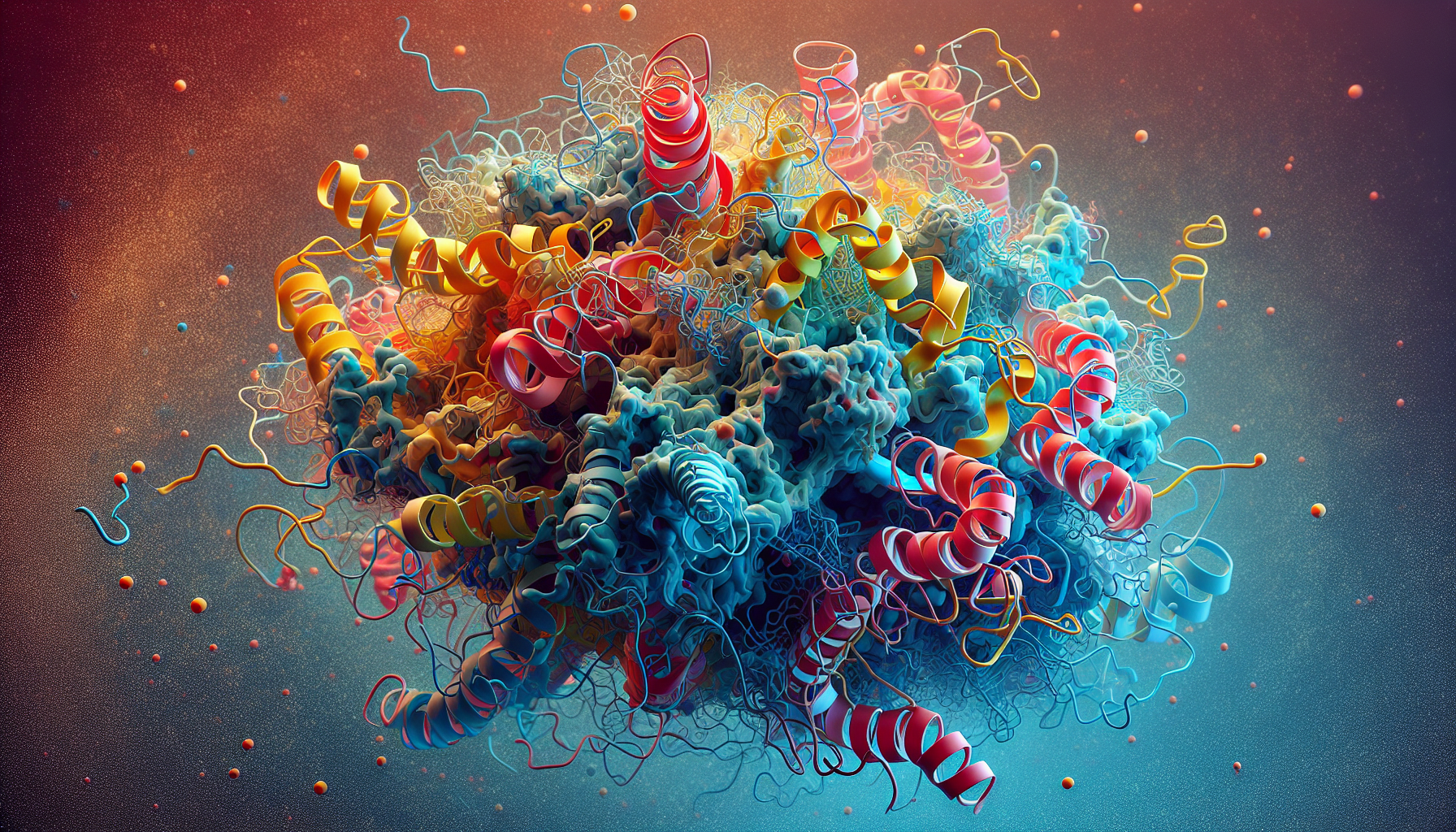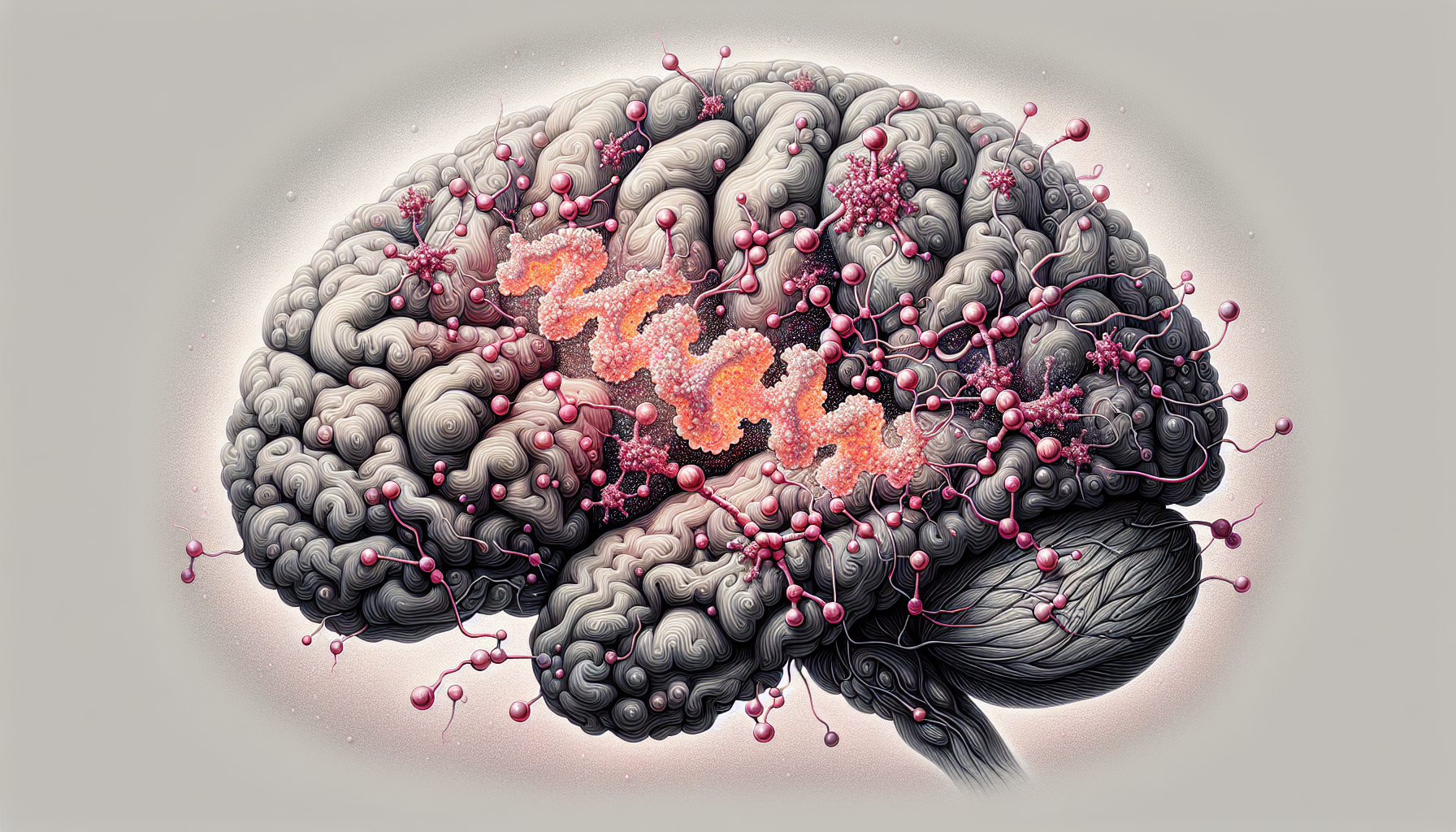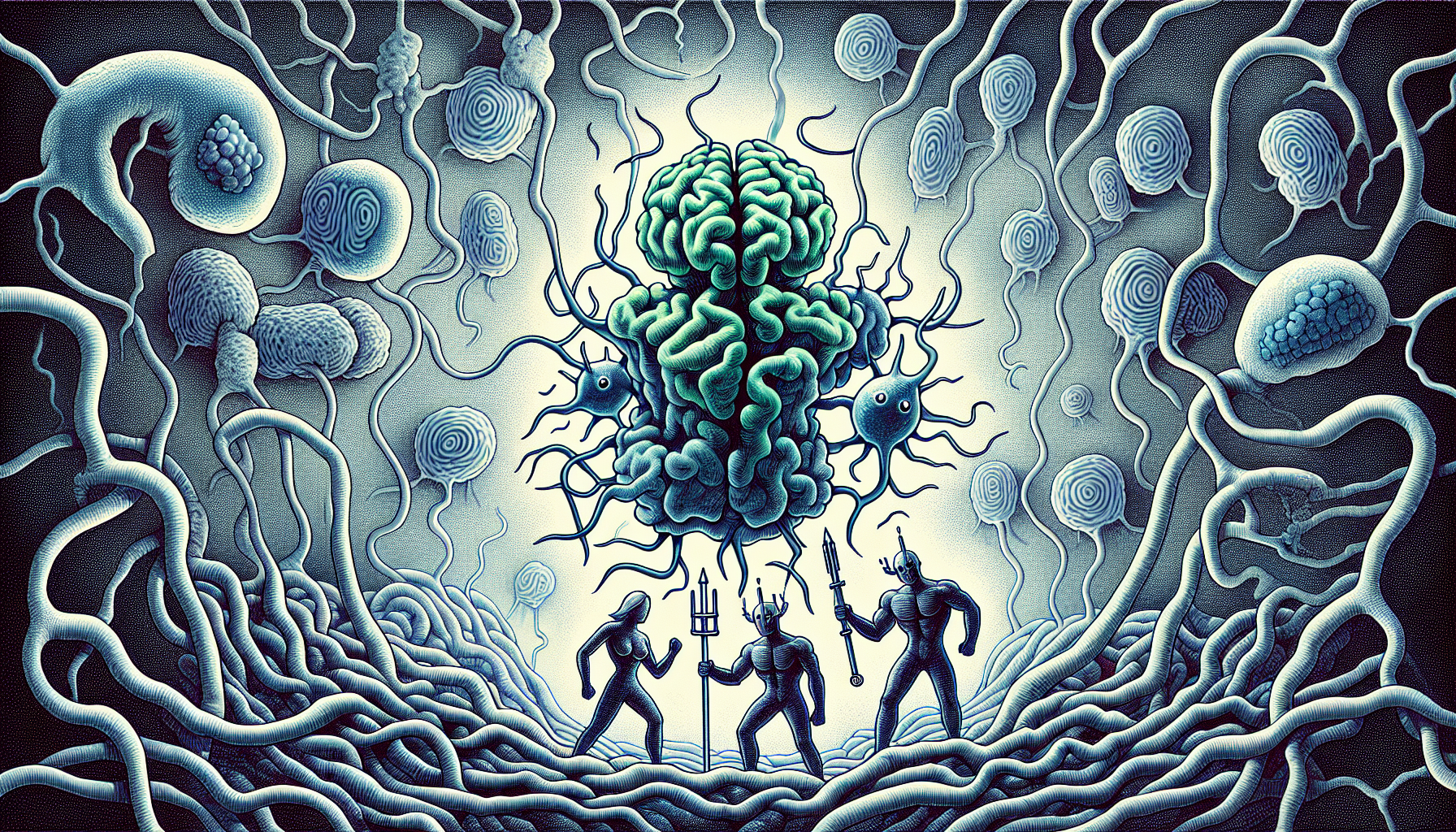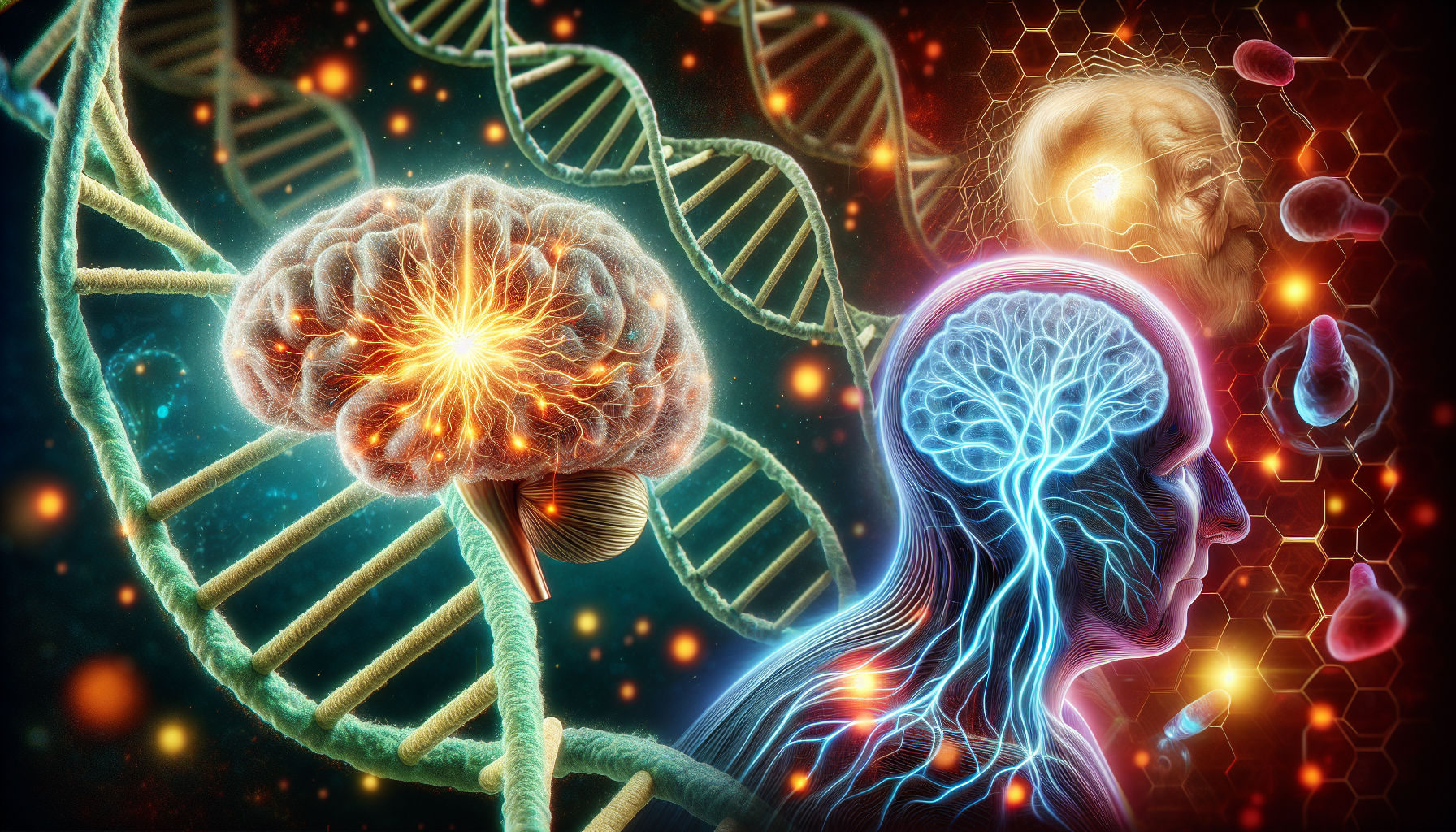What Is Klotho? Understanding Its Role in Health and Disease
Klotho is a protein that affects aging and brain health. It can influence how long we live and how well our brains function. Researchers are exploring “what is klotho” to see if it can help treat age-related diseases. This article delves into klotho’s functions, its effects on our health, and the lifestyle factors that impact its levels.
Key Takeaways
Klotho proteins, discovered in the 1990s, play a significant role in longevity and cognitive function, with elevated klotho levels linked to prolonged lifespan and enhanced brain health.
Dr. Dena Dubal’s research indicates that klotho can strengthen cognitive functions and potentially protect against neurodegenerative diseases, such as Alzheimer’s and Parkinson’s.
Lifestyle factors, like chronic stress and exercise, significantly influence klotho levels, with stress reducing and exercise increasing this protein, thereby impacting overall brain health and longevity.
Introduction
The pursuit of a longer, healthier life is a universal aspiration. It’s a quest that has captivated scientists, philosophers, and dreamers alike for centuries. Leading this modern-day fountain of youth is Dr. Dena Dubal, a distinguished physician-scientist at UCSF, whose groundbreaking research is rewriting the narrative on aging and neurodegenerative diseases. Dr. Dubal, an investigator with the Simons Foundation and the Bakar Aging Research Institute, holds the esteemed David A. Coulter Endowed Chair in Aging and Neurodegenerative Disease. Her focus is on a protein that spins the thread of life itself—klotho.
This protein, named after the Greek fate responsible for spinning the thread of life, emerged on the scientific scene in the late ‘90s and has since captivated the attention of researchers worldwide. Klotho’s discovery by Dr. Makoto Kuro-o et al. was a serendipitous event that opened the door to a realm of possibilities in the context of longevity and cognitive prowess. With its influence extending from the molecular level to the full scope of human health, the story of klotho is not just a tale of scientific wonder—it’s a beacon of hope for those looking to thrive in their twilight years.
What Is Klotho?

Understanding klotho proteins, including β klotho, is like exploring the depths of the human condition. The klotho protein, discovered by Dr. Makoto Kuro-o et al., is a guardian of longevity and a custodian of cognitive function. It manifests in two principal forms: the membrane-bound klotho, which calls the kidneys and the brain’s choroid plexus home, and the secreted klotho protein, soluble α klotho, which travels through the bloodstream and cerebrospinal fluid, acting as a hormone to influence various organs. The study of klotho related protein has the potential to unlock new insights into human health and aging.
Klotho’s role extends far beyond its points of origin, influencing processes that govern our very essence. In klotho deficient mice, decreased klotho expression precipitates a syndrome resembling hasty aging, cognitive decline, and klotho deficiency. On the flip side, mice with elevated klotho gene expression levels enjoy prolonged lifespans and heightened cognitive functions, akin to a fountain of youth flowing through their veins. This underscores the profound impact this protein has on our lives, making klotho gene expression a lighthouse guiding us toward understanding aging and brain health.
The Role of Klotho in Brain Health

Dr. Dubal’s research into klotho and brain health reveals a protein capable of strengthening the mind. Klotho’s influence on cognitive function is a testament to its ability to modulate crucial components of the brain’s architecture, such as NMDA receptors, integral to synaptic plasticity and memory formation. It’s an intricate dance where klotho doesn’t directly cross the blood-brain barrier but instead sends signals that ripple through the cerebral landscape, promoting cognitive enhancements from afar.
Dr. Dubal’s fascination with klotho was ignited by the realization that aging is not a rigid, unalterable process but rather a malleable journey shaped by genetic factors. Her hypothesis that klotho could bolster brain resilience and shield against the ravages of neurodegenerative diseases like Alzheimer’s and Parkinson’s carries the promise of a new horizon in brain health. This extends beyond a scientific pursuit; it’s a fight against cognitive decline and a commitment to strengthening our minds to endure the passage of time.
Impact of Lifestyle Factors on Klotho Levels
Our daily choices are deeply intertwined with the story of klotho. Our lifestyle can wield a profound influence on klotho levels, painting a vivid picture of how our daily habits shape our destiny. Chronic stress, a shadow that looms over modern existence, can erode klotho levels, casting a pall over our brain health and longevity. In stark contrast, exercise emerges as a valiant hero, consistently bolstering klotho levels by up to 30%, reinforcing the adage that a sound mind resides in a sound body.
This dichotomy between the effects of stress and physical activity on klotho levels emphasizes the importance of cultivating a lifestyle that cherishes and nurtures our health. It’s a strong appeal to adopt practices that improve our well-being, reminding us that we have the ability to shape our biological destiny.
Klotho and Neurodegenerative Diseases

At the intersection of klotho and neurodegenerative diseases lies a beacon of hope. Dr. Dubal’s work has illuminated klotho’s potential as a therapeutic target, a key to preserving cognitive function amidst the toxic milieu of Alzheimer’s disease. In the realm of Parkinson’s, klotho has demonstrated its prowess in enhancing cognitive abilities, although the battle against motor symptoms remains to be conquered.
These discoveries go beyond mere scientific interest; they signify a fundamental change in our approach to neurodegeneration. Klotho emerges not just as a bystander but as a potential warrior in the fight against these debilitating diseases. It’s a narrative that gives rise to the dream of a future where our brains can remain unyielding fortresses against the tide of age-related cognitive decline.
Klotho in Human Studies

The odyssey of the human klotho gene extends from the discovery of the mouse klotho gene leads to the complexity of the human condition. Genetic studies have shone a light on a variant, KL-VS, associated with higher klotho levels, sharpened cognitive faculties, and a shield against Alzheimer’s disease’s encroachment.
This genetic twist of fate holds the potential to mitigate the risk posed by the high-risk APOE4 gene, offering a glimmer of hope to those standing in the shadow of neurodegeneration.
Factors Influencing Klotho Levels
As we delve deeper into the realm of α klotho protein, we come to terms with the factors that shape its presence within us, including fibroblast growth factor 23. From the vigor of exercise to the whispers of chronic stress, a tapestry of influences emerges, each thread pulling at the levels of this life-affirming protein.
Pursuing a healthy lifestyle and managing stress don’t just lead to tranquility; they are crucial for creating an environment where klotho can flourish.
Chronic Stress
Chronic stress, a common affliction in our fast-paced existence, can subtly deplete klotho levels, compromising our brain health and cognitive function. It’s a silent adversary that we must confront with the armor of awareness and the sword of stress management strategies.
Exercise
The symphony of physical activity plays a melodious tune on the levels of klotho, with each form of exercise contributing its unique notes to the composition. Be it the rhythm of resistance training or the harmony of aerobic endeavors, the result is a crescendo of increased klotho that reverberates through the body, enhancing memory consolidation and fortifying the mind.
The Future of Klotho Research

Looking ahead at klotho research, we see promising indications of a bright future. With each discovery, we inch closer to a world where klotho-based therapies are not just a figment of our imagination but a tangible reality that could redefine the landscape of cognitive function and disease resilience.
Summary
In the tapestry of life, klotho emerges as a crucial thread, intertwining with our health, our minds, and our resilience against the relentless march of time. From the pioneering work of Dr. Dena Dubal to the everyday choices we make, the influence of klotho courses through the narrative of aging and disease.
Frequently Asked Questions
What is klotho and why is it important for health and aging?
Klotho is a protein that plays a critical role in aging and brain health, influencing lifespan, cognitive function, and resilience against neurodegenerative diseases.
How does klotho affect the brain?
Klotho enhances cognitive function by modulating NMDA receptors and affecting synaptic plasticity and memory formation, thus improving cognitive abilities indirectly.
Can lifestyle choices impact klotho levels?
Yes, lifestyle choices such as chronic stress and exercise can significantly impact klotho levels. Chronic stress tends to decrease klotho, while exercise has been shown to consistently increase it.
Is klotho relevant in the treatment of neurodegenerative diseases?
Yes, klotho has shown potential as a therapeutic target for neurodegenerative diseases, such as Alzheimer's and Parkinson's, by preserving cognitive function and enhancing brain resilience. Consider exploring its relevance in treatment.
What does the future of klotho research look like?
The future of klotho research looks promising, as it holds the potential for developing klotho-based therapies to enhance cognitive function and protect against neurodegenerative diseases, ultimately contributing to longer and healthier lives.




